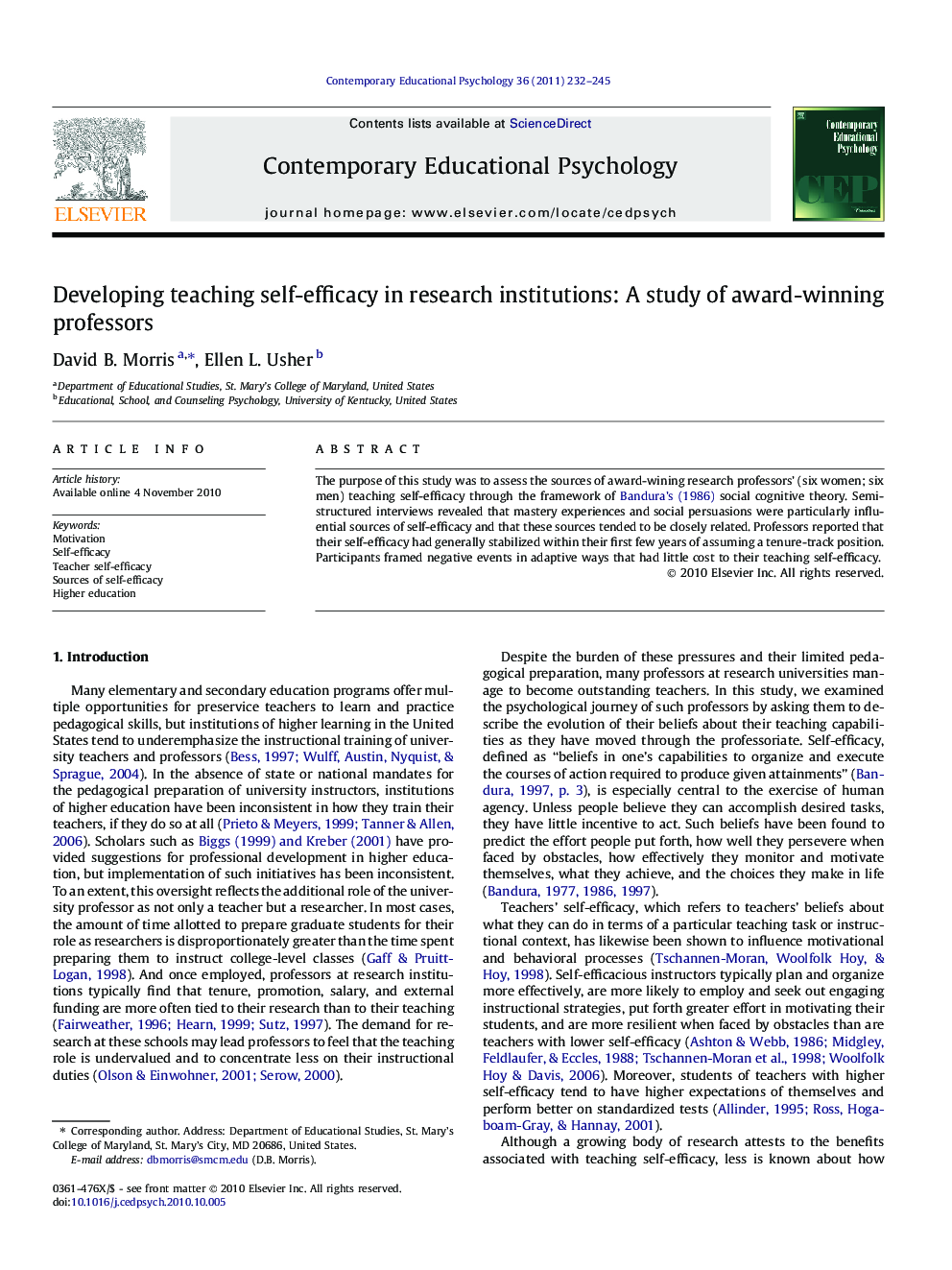| Article ID | Journal | Published Year | Pages | File Type |
|---|---|---|---|---|
| 352670 | Contemporary Educational Psychology | 2011 | 14 Pages |
The purpose of this study was to assess the sources of award-wining research professors’ (six women; six men) teaching self-efficacy through the framework of Bandura’s (1986) social cognitive theory. Semi-structured interviews revealed that mastery experiences and social persuasions were particularly influential sources of self-efficacy and that these sources tended to be closely related. Professors reported that their self-efficacy had generally stabilized within their first few years of assuming a tenure-track position. Participants framed negative events in adaptive ways that had little cost to their teaching self-efficacy.
Research highlights► Award-winning professors identified past instructional successes and students’ evaluative feedback as the most powerful sources of their teaching self-efficacy. ► Participants typically developed a stable sense of self-efficacy within the first 4 years of their teaching careers. ► Professors framed negative teaching-related experiences in adaptive ways that bolstered their self-efficacy.
